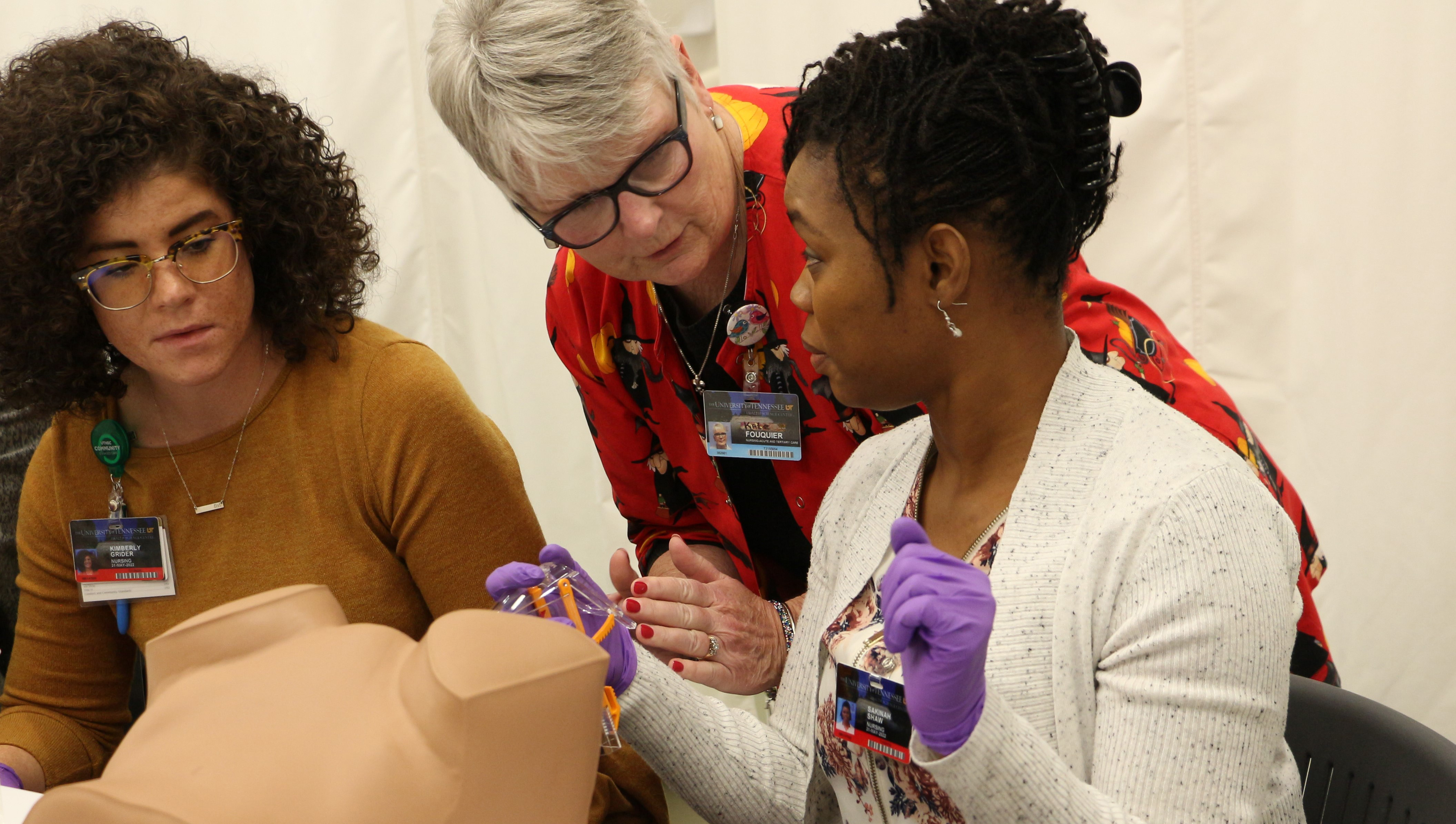DOI
10.21007/con.dnp.2024.0073
Faculty Advisor
Kate Foquier, PhD, APRN, CNM, FACNM and Carrie Harvey, PhD, APRN, ACNP-BC, CHFN
Document Type
Poster
Publication Date
Spring 4-8-2024
Disciplines
Investigative Techniques | Maternal, Child Health and Neonatal Nursing | Medicine and Health Sciences | Nursing | Nursing Midwifery | Pediatric Nursing | Public Health and Community Nursing
Abstract
Purpose/Background
The purpose of this quality improvement project is to provide and increase educational awareness and knowledge regarding iron deficiency anemia (IDA) in pregnant patients at an urban primary care clinic in Memphis, TN. This project is intended to decrease the number of individuals with IDA in pregnancy while decreasing the occurrence of IDA-related complications in pregnancy. The study aimed to introduce a cost-effective approach to help decrease or eradicate complications related to IDA during pregnancy.
The World Health Organization (WHO) estimates the prevalence of anemia-complicating pregnancies to be more than 40 percent. Pregnant women with IDA residing in low and middle-income countries are at a higher risk of low birth weight, preterm birth, perinatal mortality, and neonatal mortality. Memphis is known as an urban, predominantly Black city, in which studies have shown that the prevalence of Black gravidas was >15 percent in the first trimester, around 20 percent in the second trimester, and close to 50 percent in the third trimester. Introducing IDA educational sessions can beneficially impact Memphis maternal and infant mortality rates and the number of complications and interventions related to IDA.
Methods
Researchers collaborated with the Midwives at Regional One Health Center’s (ROH) Hollywood Primary Care Clinic in Memphis, TN, to educate 25 pregnant women. The participants were administered a pretest before reviewing the IDA content. After completion of the pretest, an infographic was given to and reviewed with the patient during a 10-minute session. After reviewing the infographic, the participant took a post-test. All women gave consent to participate in this study in their first trimester (before 13 weeks gestation), were 18 or older, and had no known blood disorders or medical conditions that interfere with liver function.
Results
The pretest/post-test showed a significant correlation between IDA educational sessions and increased awareness. The results show the benefits of education in increasing awareness to help prevent pregnant women in Memphis, TN, from developing IDA and related complications.
IDA educational sessions will continue to increase awareness amongst pregnant women. The likelihood of pregnant women complying with iron supplement regimens will steadily increase, thus decreasing the risk of IDA-related complications. Therefore, the results show that providing short educational sessions to mothers in their first trimester are not only cost-effective, but will also improve maternal and infant mortality rates, especially in underserved communities like Memphis, TN.
Implication in Nursing Practice
Pre- and post-tests will be administered before and after the iron deficiency anemia education session. The pre- and post-tests will be used to collect data regarding patient education on iron deficiency anemia in pregnancy before and after the education. This information will help determine if there is a correlation between patients receiving one-on-one education on iron deficiency anemia and their knowledge of patient compliance with iron supplementation. Once the education and data collection is completed, strengths and weaknesses should be identified for improvement throughout the project for more organized and efficient education.
Recommended Citation
Walker, Jasmine N. BSN; Morris, Erin M. BSN; Harvey, Carrie PhD, APRN, ACNP-BC, CHFN; and Fouquier, Mary K. PhD, APRN, CNM, FACNM , "Implementation and Evaluation of Iron Deficiency Anemia Content in Prenatal Education Classes" (2024). Doctor of Nursing Practice Projects. Paper 73. http://dx.doi.org/10.21007/con.dnp.2024.0073.
https://dc.uthsc.edu/dnp/73
Included in
Investigative Techniques Commons, Maternal, Child Health and Neonatal Nursing Commons, Nursing Midwifery Commons, Pediatric Nursing Commons, Public Health and Community Nursing Commons


